What To Do If an Outlet Stops Working? (Troubleshooting Tips)
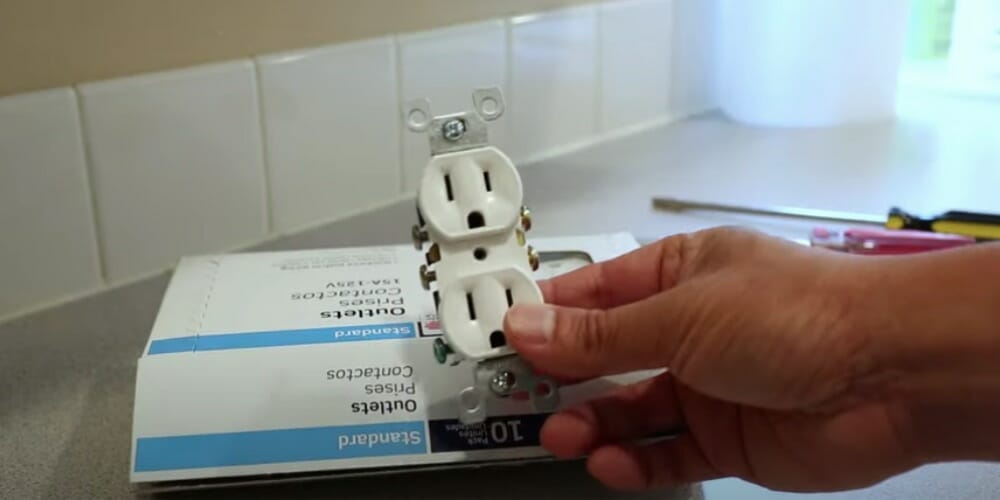
If you’re worried about an outlet in your home no longer working, I’ll show you what you can do about it before you decide it needs to be replaced. You might just be able to get it working again!
Outlets are generally reliable devices that last several years. Unless they are very old and worn out, they only stop working if something else is wrong.
You can easily check a non-working outlet’s Power using a tester. If it’s not working, it can usually be fixed by reducing the load on the circuit, switching the breaker back on, strengthening contacts, securing the wires, drying it, or replacing the outlet, when appropriate.
In this article, where I show you what to do if an outlet stops working, I assume the outlet was working previously and suddenly stopped or was found not working anymore.
Checking a Non-Working Outlet
Is it Delivering Power?
If an outlet is not working, you should first test its Power.
To do a power test, use a voltage tester or a voltmeter. A tester can confirm whether there is Power, but a voltmeter can tell you exactly how much Voltage there is.
If using a non-contact voltage tester, you only have to bring it close to one of the slots to check for Power (see the picture below).
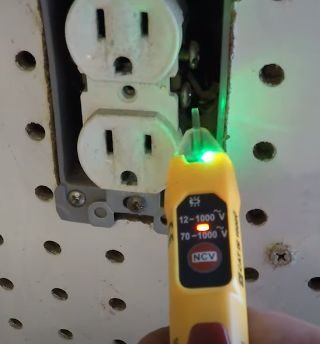
If using a voltmeter, insert its probes into the two vertical slots. You should get a reading close to the supply voltage (normally 110-120V in the US).
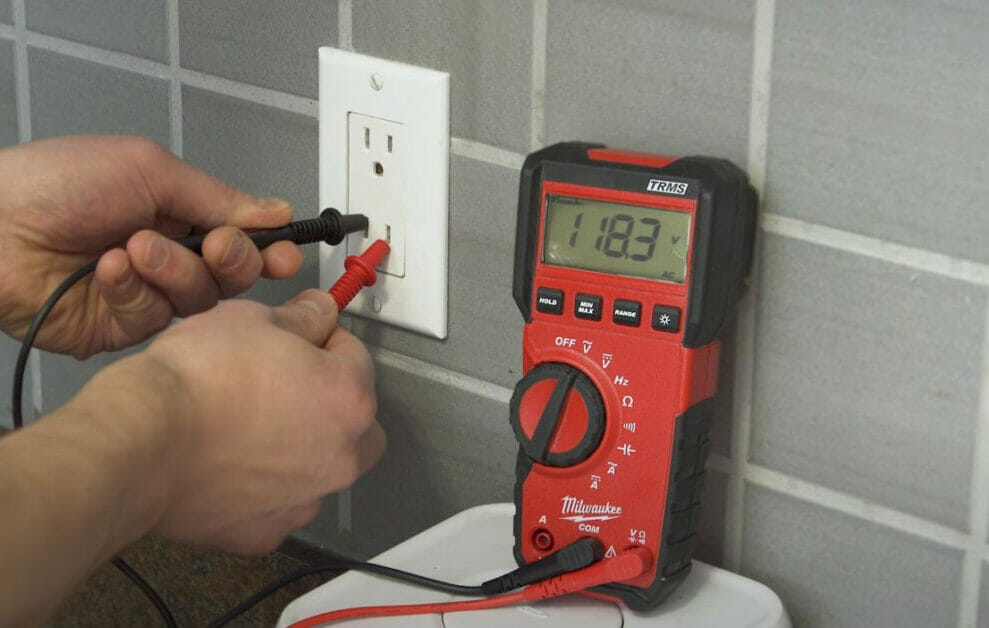
Is it Getting Power?
An outlet can only deliver Power if it is getting Power itself.
If the above power tests show that the outlet is not giving out Power, you must investigate further.
Why Outlets Stop Working and What to Do
An outlet can stop working for various reasons, and there are several things you can do.
Here are some common reasons an outlet may have stopped working and what you can do in each situation.
Tripped Breaker
An outlet cannot supply Power if the breaker on its circuit has tripped.
It might be due to an appliance you just plugged in, the breaker, the outlet, or the panel. If you see a tripped breaker, try switching it back on if the circuit is neither overloaded nor wet.
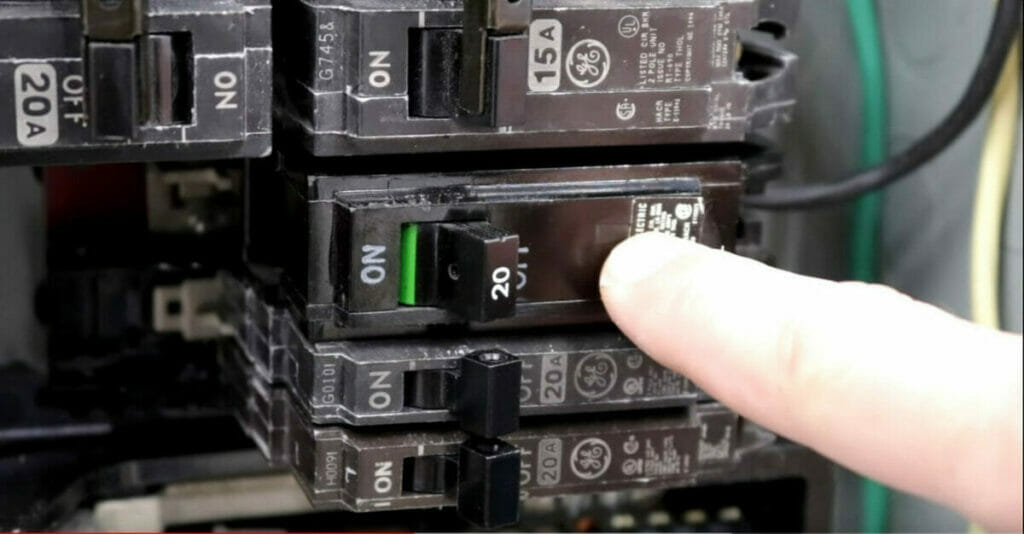
If there is no sign of the outlet operating correctly, you might need to replace the breaker.
If the breaker trips frequently, check the loads. Ensure the circuit is only being used according to its capacity. If you need to use something that requires more Power, consider upgrading the wiring and circuit breaker.
If it trips when nothing is plugged in or for no apparent reason, it isn’t very accurate and must be replaced. Call an electrician if it’s the panel or something else you can’t figure out.
Circuit Overload
The circuit is probably overloaded if the outlet stops working after plugging in an appliance.
It causes a current surge and the circuit breaker to trip. This cuts off supply to all appliances connected to it.
Reduce the load before switching the breaker back on. If Power is restored, the appliance is too heavy. Only add extra appliances according to the circuit’s capacity.
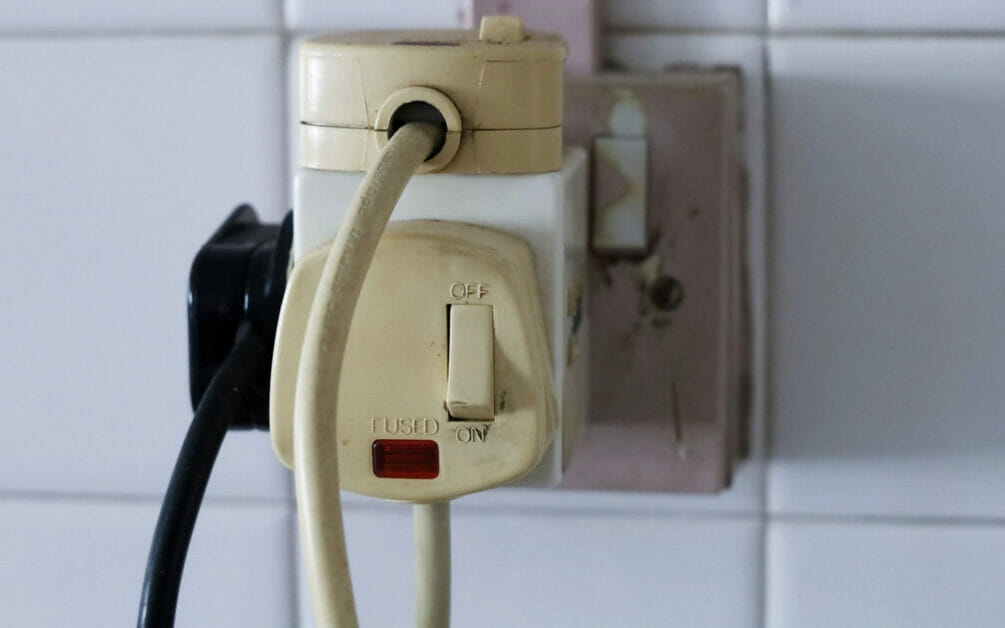
If you didn’t add an appliance, the one already operational on that circuit might be drawing too much Power. Inspect it for a possible fault. Please don’t use it again until it is fixed.
Current Surge
A breaker can also trip if something else causes a current surge, such as excess moisture or a problem in the main panel.
If it’s wet, you should dry the outlet thoroughly before using it again.
In rare instances, a current surge in a circuit can also be caused by the electricity supplier or a bolt of lightning.

Old Outlet
If the outlet was installed many years ago, it’s probably old and may have worn out.
If it’s old, you should replace it anyway.
GFCI outlets provide greater protection against ground faults than regular ones and last longer, often up to 15-25 years, but they can also go bad sooner if used poorly. Also, it can trip when it detects even a slight current surge.
A Problem with the Wiring or Contacts
An outlet will fail to work if there’s a problem with the wiring or contacts.
A wire may be loose, a contact may have corroded or become rusty, the insulation may have worn off, or the wiring may be very old. You will have to open the outlet to check.
If you see rusty wires or connectors, have them replaced? A corroded connection could prevent the outlet from functioning normally even if the wiring is secure. If there is too much corrosion inside, throw the outlet away and replace it with a new one. If the outlet is in an area exposed to moisture, ensure it’s a GFCI outlet.
If your wiring is very old, and you’re noticing several outlets in your home with the same problem, it might be a good time to call an electrician and inquire about replacing your entire wiring. Electrical wires can deteriorate over time. You will probably have to rewire your home.
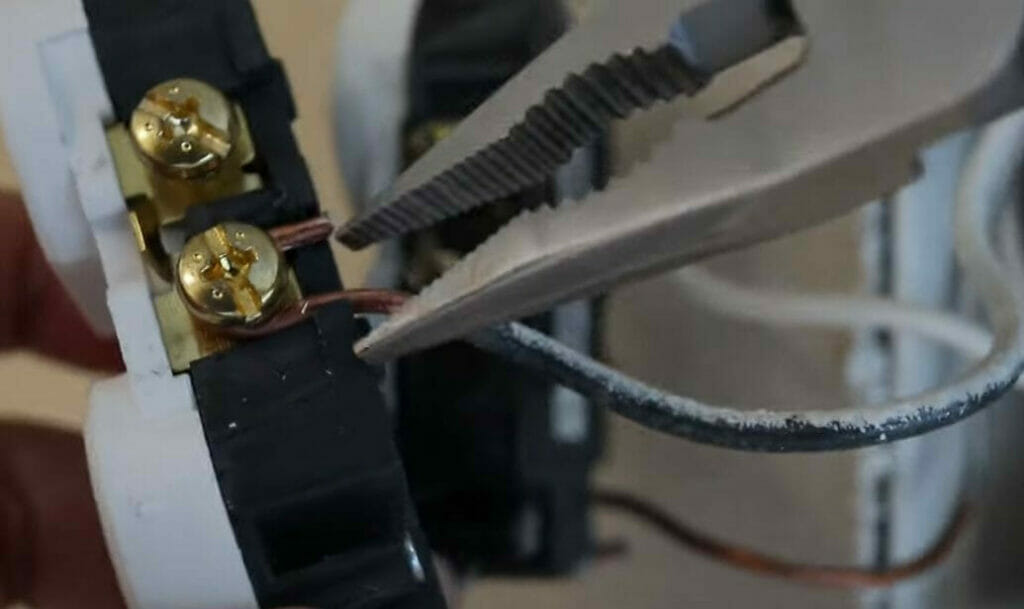
Overheating or Arcing
Outlets should not get warm.
It could be due to an overload on the circuit if it’s warm. In this case, reduce the load. Otherwise, it may be weak and in need of replacement.
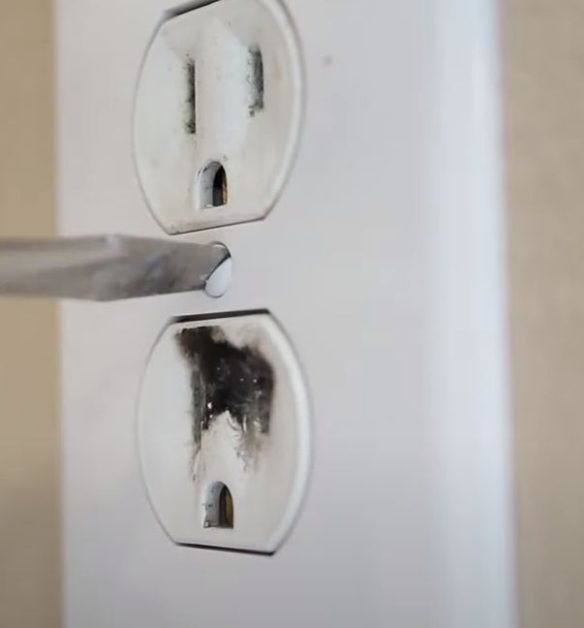
Faulty Outlet
If you’re unsure why an outlet isn’t working, and it’s a cheap one you bought recently, it isn’t accurate. Replace it with a working one of higher quality.
If the outlet is broken, you shouldn’t be using it. It might only be a small crack or chip on the cover plate, but there might also be damage inside, or water may have seeped through. Replace it.
References
Overloaded circuit: https://bucksfire.gov.uk/safety-hub/electrical-safety/. 2020.
Video Reference
AMRE Supply
Bill Newberry Second
Flannel Guy DIY
TheRenderQ
